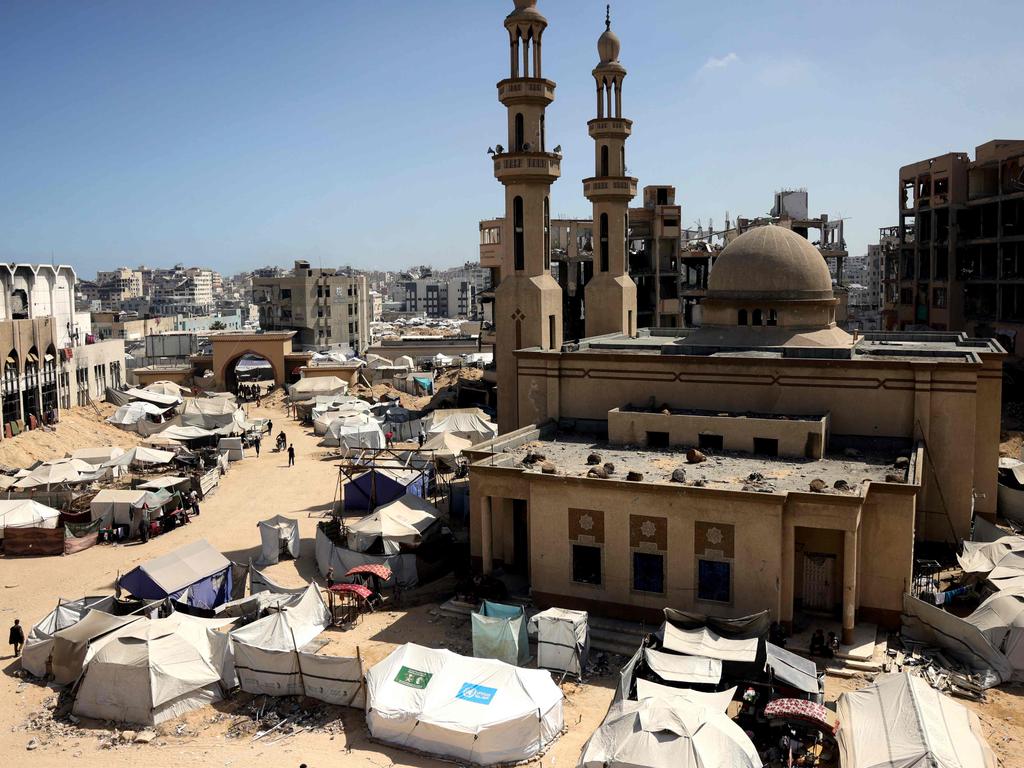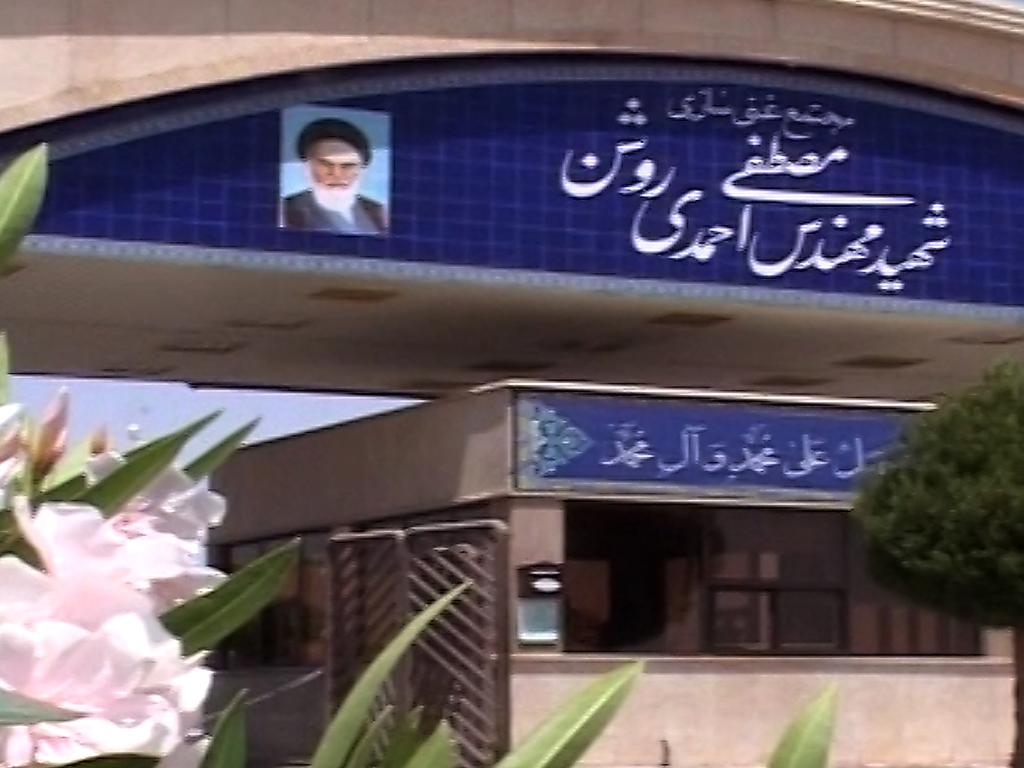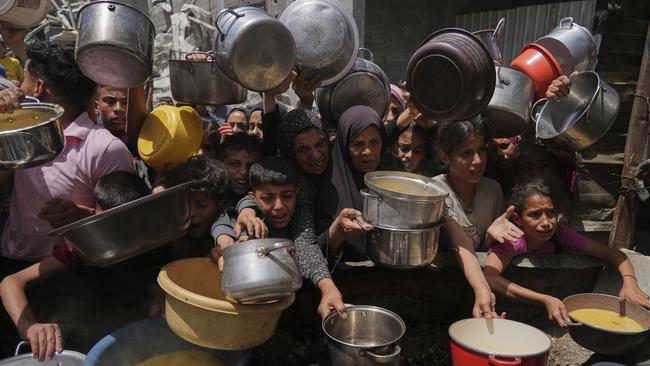
Benjamin Netanyahu faces a critical dilemma as Israel alienates even its closest allies with its reluctance to end its aid blockade of Gaza and its new ground offensive into the enclave.
The Israeli leader is wedged between keeping the support of the nationalist right-wing of his coalition – and therefore his political survival – or further damaging Israel’s international reputation.
For now, Netanyahu is choosing to prioritise his own political survival ahead of Israel’s reputation as he makes clear his reluctance to fully allow aid back into Gaza after 11 weeks of blockading it.
But the images being beamed around the world of desperate Palestinians holding empty pots and jostling for morsels of food have been too much even for those countries that have fully backed the righteousness of Israel’s war against Hamas.
Israeli allies France, the UK and Canada have not only condemned Israel’s handling of the humanitarian situation in Gaza and its ground offensive but have threatened “further concrete” actions unless Netanyahu changes course. Australia is one of 23 countries that signed a statement demanding the full resumption of humanitarian aid into Gaza.
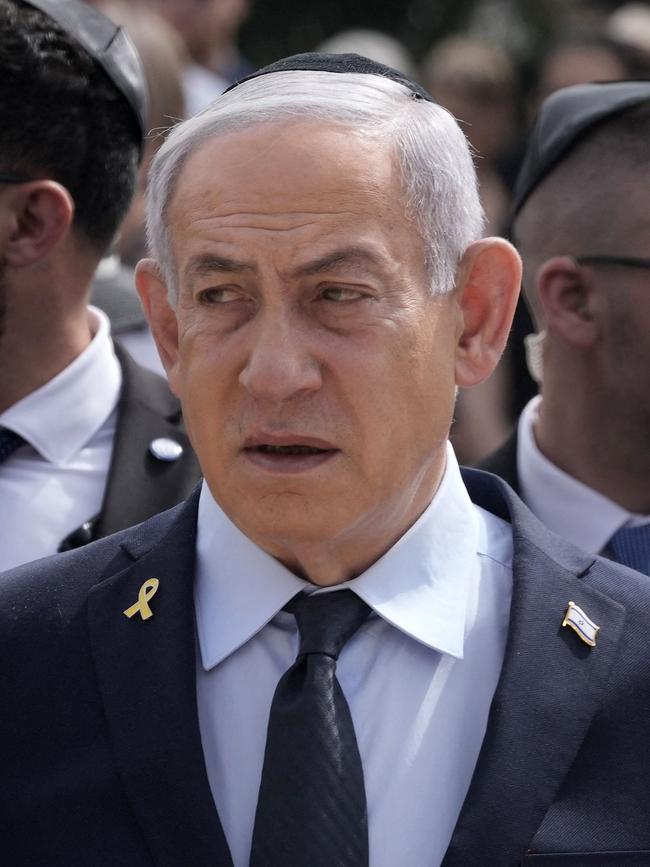
Behind the scenes, even Israel’s strongest ally, the US, has been pressuring Netanyahu to restore the flow of aid to Gaza, with Donald Trump warning: “We’re looking at Gaza, and we’ve got to get that taken care of. A lot of people are starving.”
US pressure has forced Netanyahu, reluctantly, to now allow “basic” amounts of food into Gaza, something his right-wing political colleagues say will benefit Hamas.
They earlier threatened to withdraw support for his government if aid were to resume.
Netanyahu’s reliance for his political survival on the virulently anti-Palestinian right wing nationalists in his Coalition has been one of the tragedies of Israel’s conduct of the war in Gaza. They have encouraged Netanyahu to be blind to Israel’s excesses both in terms of civilian casualties during the 19-month conflict and now in terms of providing humanitarian aid to a starving population.
But this new phase of Israel’s war on Hamas in Gaza – a ground offensive combined with little or no humanitarian aid – is its most contentious for both humanitarian and strategic reasons.
Netanyahu argues correctly that too much of any aid provided by Israel and international NGOs is stolen by Hamas to feed its own fighters. This behaviour by Hamas is typical of the murderous terror group which has shown utter disregard for the welfare of Palestinians ever since it condemned them to misery by committing the atrocities of October 7.
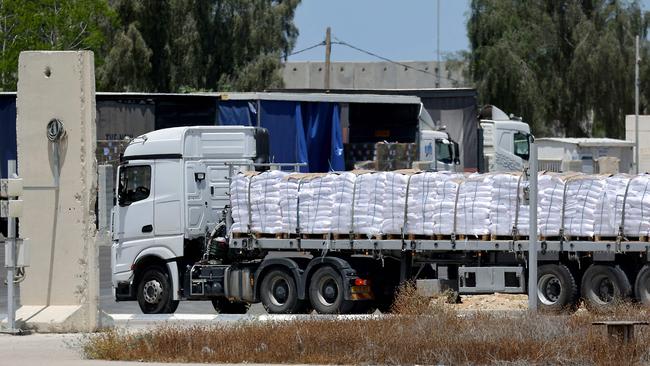
Netanyahu’s argument for withholding aid is that it will help to pressure Hamas into negotiating the temporary ceasefire-for-hostages deal Israel wants but which Hamas is refusing.
But the reality of Israel’s withholding of aid has been to provoke a needless and cruel humanitarian crisis among ordinary Palestinians in Gaza. That is the only concrete outcome of this failed policy.
If Hamas is feeling more pressure, they have certainly not displayed it. At this week’s mediation with Israel in Doha, the terror group refused to budge from their longstanding demand for the release of all hostages in exchange for permanent peace. The talks ended without resolution.
Instead, Israel now has a full-blown reputational crisis to deal with as even its allies recoil from Netanyahu’s willingness to starve Palestinians in order to pressure Hamas. This comes as Israel’s allies are questioning Netanyahu’s new ground offensive which aims to capture large parts of Gaza and retain a military presence there. He says large portions of Gaza will be evacuated when the troops take over. This strategy is aimed at helping Israel hunt more effectively for the remaining Hamas militants, instead of the “whack-a-mole” strategy where Israel would clear one area of militants only to see them pop up again later.
Netanyahu has refused to answer the many questions arising from this new strategy. For example, how can large segments of the population be uprooted and where will they go in an enclave already largely destroyed? How will the Israeli military succeed in defeating the remnants of Hamas with this strategy when it failed to do so last time? And can such a strategy be enacted without further endangering the 21 living hostages still held by Hamas?
The new strategy is an implicit recognition Netanyahu has failed to achieve his central aim of fully destroying Hamas. New thinking is needed about how to end this war to ensure that the despicable Hamas never again wields control of Gaza. But Netanyahu is now pursuing this war in a way that offers no guarantee of final victory but risks Israel losing the support of its remaining allies.


